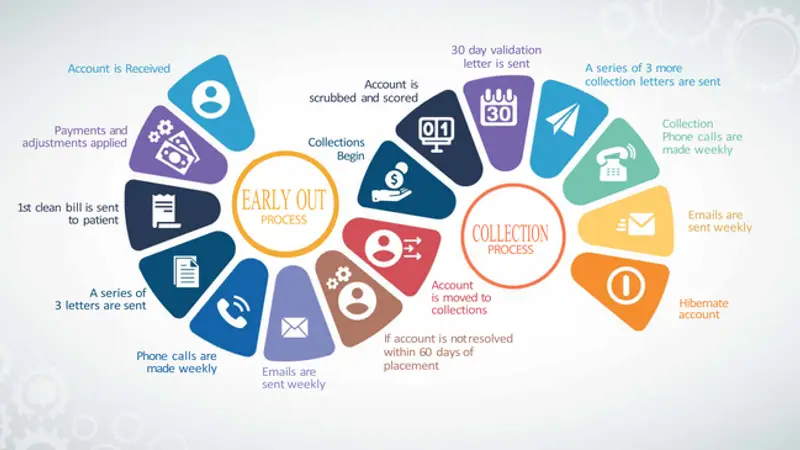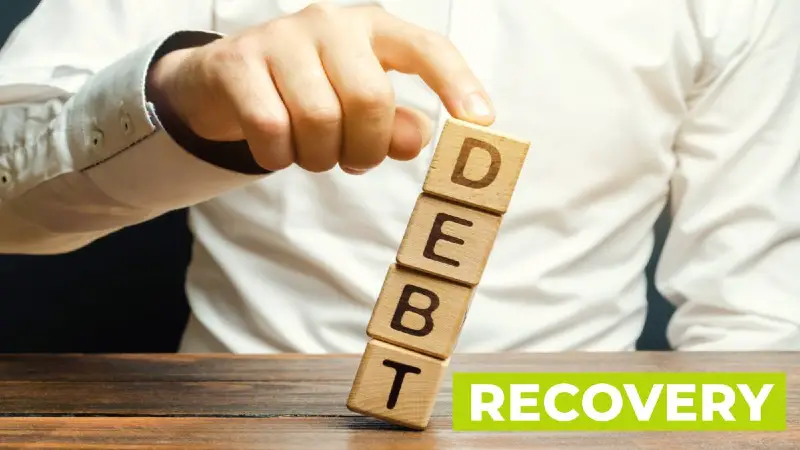
Debt Collection Process in New Zealand: A Comprehensive Guide
Debt collection is an essential process for any business, but it can be a challenging and time-consuming task. In New Zealand, debt collection is governed by laws and regulations that protect both the debtor and creditor. It’s essential to understand the debt collection process in New Zealand to ensure that you’re following the rules and recovering outstanding debts effectively. In this guide, we’ll provide you with a comprehensive overview of the debt collection process in New Zealand, including the legal framework, the steps involved, and best practices.
Table of Contents
The Legal Framework for Debt Collection in New Zealand
The Credit Contracts and Consumer Finance Act (CCCFA)
The CCCFA is the primary legislation governing consumer credit contracts in New Zealand. It applies to any contract that provides credit to a consumer, such as personal loans, hire purchase agreements, and credit card contracts. The key provisions of the CCCFA include:
- Lender responsibilities: The CCCFA requires lenders to provide clear and concise information about the credit contract, including interest rates, fees, and charges. Lenders must also assess the borrower’s ability to repay the loan and provide ongoing support if the borrower experiences financial hardship.
- Borrower rights: The CCCFA provides a range of protections for borrowers, including the right to cancel a credit contract within three days of signing, the right to receive a copy of the contract, and the right to dispute any charges or fees.
- Penalties for non-compliance: Lenders who fail to comply with the CCCFA may face fines, penalties, or legal action.
The Fair Trading Act (FTA)
The FTA is another critical piece of legislation that governs debt collection process in New Zealand. The FTA is designed to protect consumers from misleading or deceptive conduct, including debt collection practices. The key provisions of the FTA include:
- Prohibition on false or misleading representations: Debt collectors are prohibited from making false or misleading statements to debtors, such as threatening legal action or misrepresenting the amount owed.
- Prohibition on unconscionable conduct: Debt collectors must not engage in unconscionable conduct, such as taking advantage of a debtor’s vulnerability or lack of understanding of their rights.
- Penalties for non-compliance: Debt collectors who violate the FTA may face significant fines or legal action.
The Debt Collection Guidelines for Creditors and Collectors
The Ministry of Business, Innovation, and Employment (MBIE) has developed Debt Collection Guidelines to provide guidance to creditors and collectors on best practice debt collection process. The guidelines include:
- Treating debtors with respect and dignity
- Providing clear and accurate information to debtors
- Avoiding harassment or intimidation
- Offering flexible repayment options for debtors who are experiencing financial hardship
- Working with debtors to find mutually acceptable solutions
The guidelines are not legally binding but represent best practice standards for debt collection process in New Zealand.

5 Steps To Debt Collection Process NZ
The NZ debt collection process can be a complex and daunting experience for both creditors and debtors in New Zealand. It’s important for both parties to understand the process to ensure a fair and timely resolution. In this section, we will discuss the debt collection process in New Zealand, from pre-action considerations to enforcement of judgment.
Step 1 : Pre-Action Considerations Before taking legal action, there are several pre-action considerations to take into account:
- Assess the debtor’s financial situation: It’s important to consider the debtor’s ability to pay before taking any legal action. This can help to determine the most appropriate course of action.
- Consider alternative dispute resolution (ADR): ADR methods, such as mediation or arbitration, can be a cost-effective and efficient way to resolve a debt dispute without going to court.
- Review your documentation: Ensure that you have all the necessary documentation, such as invoices and contracts, to support your claim.
Step 2 : Demand for Payment The first step in the debt collection process is to issue a demand for payment:
- Written demand: A written demand for payment should be sent to the debtor, outlining the details of the debt and requesting payment within a specified time frame.
- Follow-up: If the debtor fails to respond to the initial demand for payment, a follow-up letter can be sent, outlining the consequences of non-payment.
Step 3 : Issuing a Statement of Claim If the debtor still fails to pay, the creditor can take legal action by issuing a statement of claim:
- Filing a statement of claim: The statement of claim is a legal document that outlines the details of the debt and the creditor’s claim. It must be filed with the appropriate court and served on the debtor.
- Response: The debtor has a specified time frame to respond to the statement of claim, either by admitting the debt, denying the debt, or defending the claim.
Step 4 : Obtaining Judgment If the debtor does not respond to the statement of claim, the creditor can apply for default judgment. If the debtor contests the claim, a hearing will be scheduled:
- Hearing: The hearing will be held in court, where both parties will present their case. The judge will make a decision based on the evidence presented.
- Judgment: If the creditor is successful, a judgment will be issued against the debtor, ordering them to pay the debt.
Step 5 : Enforcement of Judgment If the debtor fails to pay the debt after a judgment has been issued, the creditor can take steps to enforce the judgment:
- Seizure and sale of property: The creditor can apply to the court for a warrant to seize and sell the debtor’s property to satisfy the debt.
- Garnishment of wages: The creditor can apply to the court for an order to garnish the debtor’s wages, deducting a portion of their income to pay the debt.
- Bankruptcy: If the debt is significant and the debtor has no means to pay, the creditor can apply to have the debtor declared bankrupt.

4 Best Practices for Debt Collection in New Zealand
Debt collection is a crucial aspect of running a successful business in New Zealand. It is essential to have effective and efficient strategies in place to ensure timely payments and avoid bad debt. In this section, we will discuss the best practices for debt collection process in New Zealand.
Communication with the Debtor: Effective communication is key to successful debt collection. When communicating with a debtor, it is essential to remain professional and respectful, and to use clear and concise language. The following are some tips for effective communication with debtors:
- Establish a relationship with the debtor
- Clearly communicate the debt owed
- Listen to the debtor’s concerns and try to find a solution
- Follow up on agreements made
Documentation and Record-Keeping: Proper documentation and record-keeping are essential for effective debt collection process. Accurate records can help to identify trends and potential issues, and can be used as evidence in legal proceedings. The following are some best practices for documentation and record-keeping:
- Keep accurate records of all communications with debtors
- Keep detailed records of payment agreements and arrangements
- Keep track of key dates, such as payment due dates and deadlines for legal action
- Keep all relevant documents, such as contracts and invoices, in a safe and easily accessible location
Timely Action and Follow-Up: Timely action and follow-up are critical to the success of debt collection efforts. The longer a debt goes unpaid, the more difficult it becomes to recover. The following are some best practices for timely action and follow-up:
- Act quickly when a payment is missed
- Follow up promptly on any agreed payment arrangements
- Regularly review and assess the status of outstanding debts
- Consider outsourcing debt collection to a professional agency if necessary
Use of Debt Collection Agencies: Debt collection agencies can be an effective tool for recovering outstanding debts. These agencies are experts in debt collection and can take the burden off business owners. The following are some best practices for using debt collection agencies:
- Choose a reputable agency with experience in your industry
- Clearly communicate your expectations and requirements to the agency
- Ensure that the agency is compliant with all relevant laws and regulations
- Regularly review and assess the performance of the agency
Effective debt collection is crucial to the financial health and success of any business. By following these best practices for debt collection process in New Zealand, business owners can increase their chances of recovering outstanding debts and avoid bad debt. Remember to communicate effectively with debtors, keep accurate records, take timely action and follow-up, and consider using a debt collection agency if necessary.
The debt collection process in New Zealand is highly regulated and requires creditors and debt collectors to adhere to specific laws and guidelines. It is important to understand your rights as a debtor and your responsibilities as a creditor to ensure a fair and transparent process. If you are struggling with debt, it is essential to seek support and advice from a reputable debt management agency to help you navigate the debt collection process and find a solution that works for all parties involved. Remember, effective communication and negotiation are key to successful debt collection process, and there are resources available to help you every step of the way.